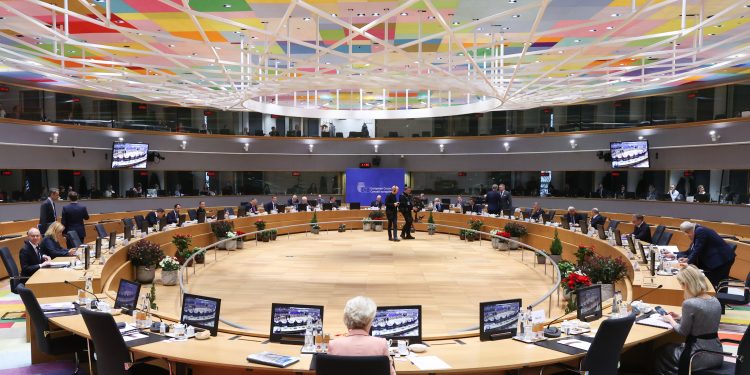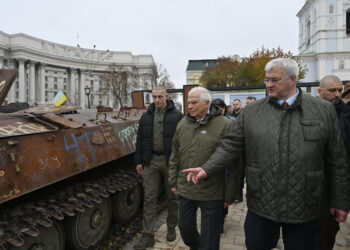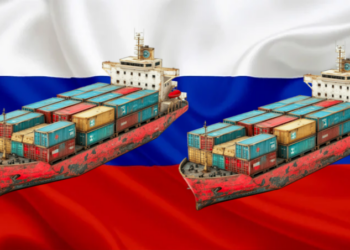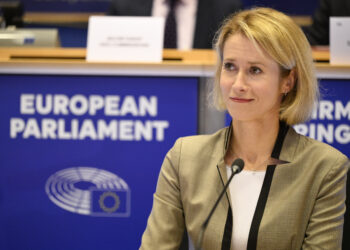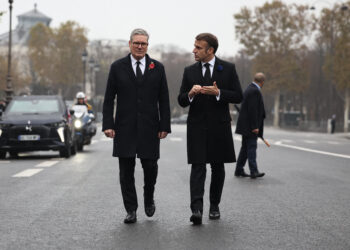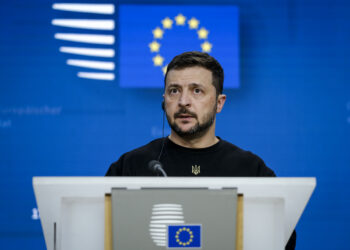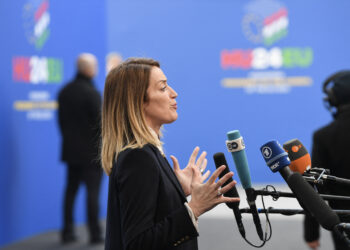Brussels – EU heads of state and government are meeting to once again agree on a response to the two biggest international crises, the escalating Russian attacks in Ukraine and the conflict in the Middle East that has now taken on a regional dimension. However, as we come to the eve of the summit, holding sway among the 27 member states is especially the migration issue, which has come back powerfully to the fore just months after the approval of the new pact for migration and asylum.
Ukraine is certainly the least divisive of the three main items on the agenda. Volodymyr Zelensky will be present, invited by the president of the European Council, and will put forth to the leaders the “plan for victory” presented to Parliament in Kyiv today. The Ukrainian president’s speech will be followed by work “on the next steps to build consensus around a peace initiative rooted in the principles of the UN Charter,” Charles Michel indicated in his invitation letter to EU heads of state and government. In the latest draft of the summit conclusions that leaders will negotiate tomorrow, the 27 member states say they aim to “quickly conclude the work on the European Peace Facility (EPF) assistance measures” and stress the “importance of keeping the commitment made together with G7 partners” to secure the $50 billion loan to Kyiv by the end of the year, through profits from frozen Russian assets.
The leaders should call for “rapidly intensifying military support and accelerating its supply” to Kyiv, particularly of “air defense systems, ammunition, and missiles.” Regarding support for Ukraine, the obstacle to overcome is always Hungarian Prime Minister Viktor Orbán. For two years, he has systematically been getting in the way of funds to Ukraine. He has been blocking the disbursement of 6.6 billion from the EPF. “As far as Hungary is concerned, I think we are reaching the limits in terms of possible levers” to convince Orbán, a senior EU official admitted.
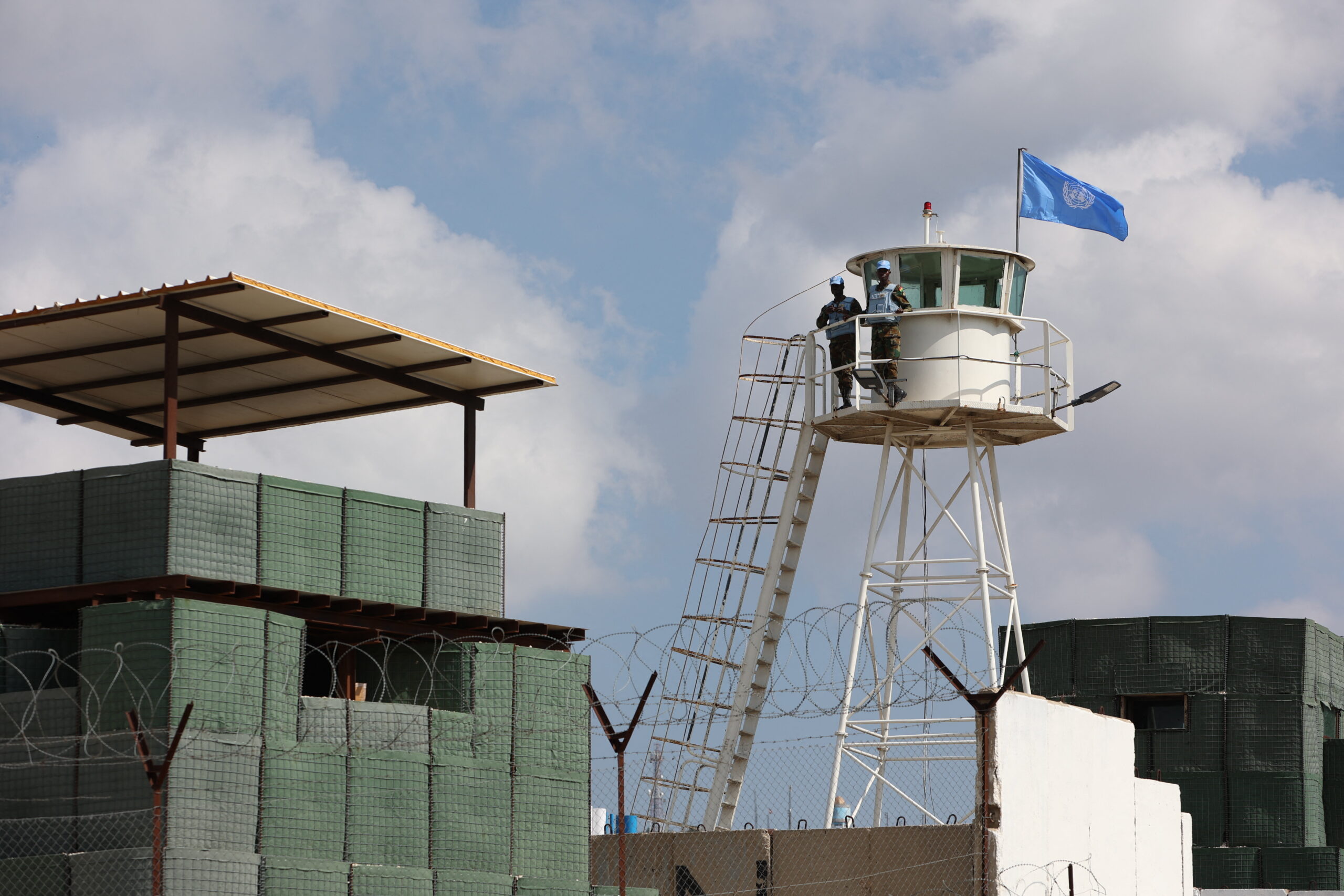
Regarding the Middle East, divisions are widening. According to European sources, the hope is to “find an agreement” on a shared text. Since Oct. 7, 2023, this feat has proved anything but a foregone conclusion and has repeatedly highlighted the EU’s inability to speak with one voice on foreign policy. As Michel reaffirmed ahead of the summit, “The recent attacks on UN peacekeepers in southern Lebanon are irresponsible and unacceptable.” While unanimous condemnation of Israeli attacks appears “likely,” as are calls for de-escalation and more humanitarian support for civilian populations in Lebanon and Gaza, divergence persists “over the extent to which Israel’s self-defense is legitimate.” According to a senior official, member states continue pecking at each other “over the order of events, over who started the conflict.”
The varying sensitivities of member countries on the Middle East war continue to be reflected in the terms they choose to use in the summit’s concluding document, which is always very cautious – and, therefore, inevitably weak – so as not to create excessive divisions within the bloc. In the chapter of the conclusions devoted to the Middle East, the “condemnation in the strongest terms” of Iran’s Oct. 1 attacks on Israel and Iran’s “severely destabilizing actions through terrorist and armed groups – including the Houthis, Hezbollah, and Hamas – that pose a serious threat to regional stability” will certainly find a place.
The most “delicate” item is on migrants. There is already a clash on the implementation of the Pact
Paradoxically, EU sources suggest that it is on migration that leaders will have the most “delicate” discussion. The sharp shift to the right of the old continent’s political center of gravity has pushed the dossier back into the spotlight of the EU summit from several angles. There is the Migration and Asylum Pact, adopted laboriously by the 27 member states in May, has to be implemented, but many are skeptical about it. Hungary and the Netherlands want an exemption from the shared policy, and even the pro-European prime minister of Poland, Donald Tusk, announced he wants to introduce heavy restrictions on asylum rights. There is a need to keep the Schengen area, undermined by continued suspensions by member states – the latest being Germany – justified by the need for more checks on migrants. There is to discuss the controversial idea gaining momentum in Brussels – sponsored by European Commission President Ursula von der Leyen ahead of the summit of “external hotspots” to handle asylum claims outside the EU.
European sources predict “different points of view in the room,” with the risk that “some delegations may block conclusions” on migration. In essence, moved by a common “desire to do more to prevent irregular migration,” member countries could be divided into three groups: those focusing on implementation of the Pact, those on partnerships with third countries, and those insisting on the need to explore new ways particularly to increase returns. In the draft conclusions on which national delegations have worked so far, the European Council “stresses the importance of the implementation of the Pact,” calls for “enhanced cooperation with countries of origin and transit,” and commits to “consider new ways to prevent and combat irregular migration, in line with international law.”
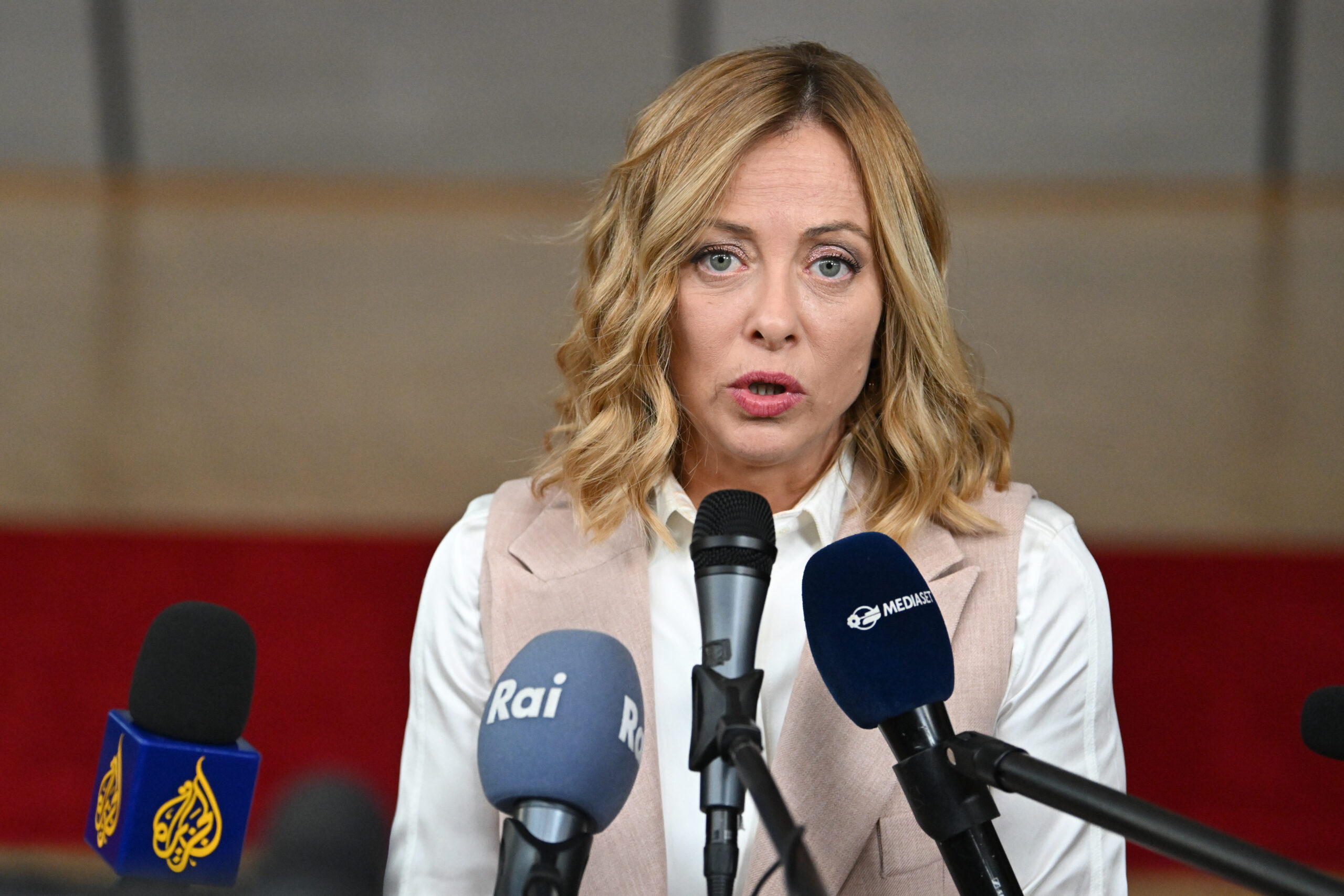
According to a senior EU official, the main issue will be agreeing on the right terms for implementing the migration and asylum pact, as Germany, the Netherlands, and “some of the Nordic countries” would like to emphasize the need to prioritize the enforcement of rules on secondary movements and components of the pact “that burden the countries of first entry.” The conversation always returns to this point. Meanwhile, the Nordic countries, particularly Denmark and the Netherlands, are interested in the “Albania model,” launched by Giorgia Meloni and sponsored by von der Leyen. Tomorrow morning, the Italian government is sponsoring a meeting of a group of countries, among those who on May 15 signed the letter to EU Home Affairs Commissioner Ylva Johansson on so-called “innovative solutions.”
A group of “like-minded” countries, as defined by the Italian premier upon her arrival in Brussels for the summit with the Gulf countries: “It will be very participatory; many countries looking at the policies that Italy has pursued in recent years on migration,” Meloni claimed. There are two obstacles, aside from the risks to the human rights of migrants – which do not seem to be at the center of the debate: how to ensure compatibility between the outsourcing of asylum procedures and international law, and, more importantly, how to convince third countries to serve as external hubs. “Tomorrow morning, they hope to have a brief coordination and then talk about it at the summit,” a source anticipated.
English version by the Translation Service of Withub